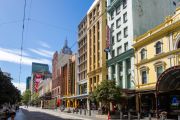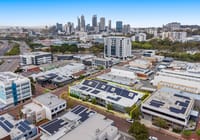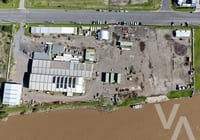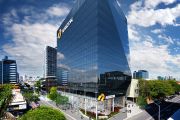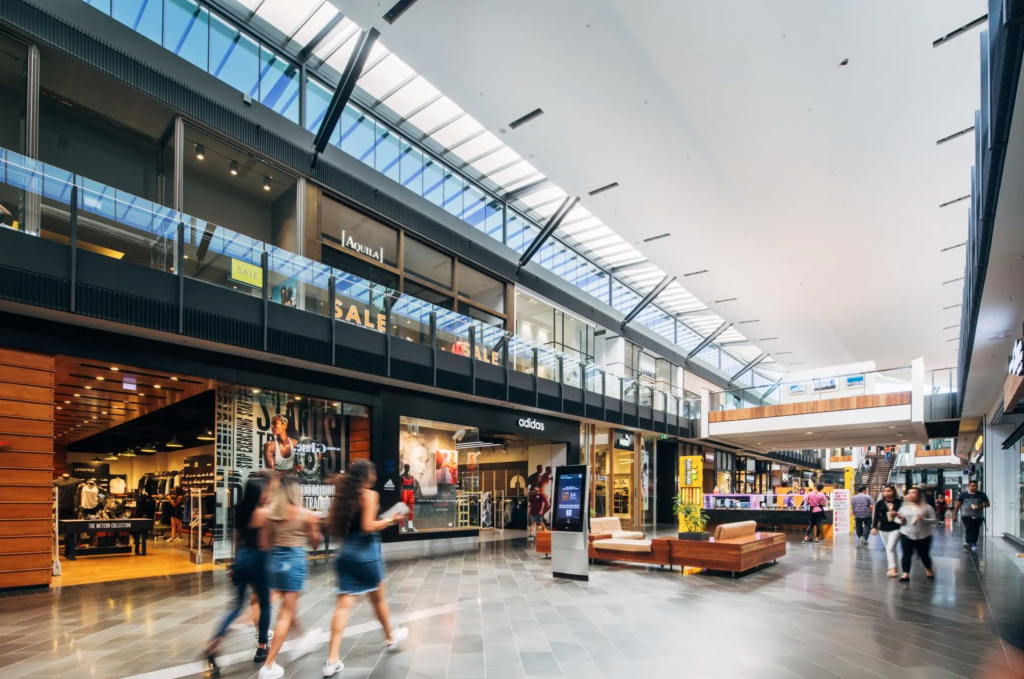
Landlords re-lease as department stores downsize
Shopping centre landlords and retailers are undertaking further restructuring in malls to adapt to new shopping habits and how consumers use malls in the post-pandemic era.
While tenants such as department stores have shrunk stores over recent years, there has been a fresh wave of activity to future-proof malls by landlords, allocating space to new tenancies by downsizing areas where space is no longer required.
One consideration for landlords is that department stores take an average 20 plus 20-year lease in a mall and can negotiate lower average leases. Smaller stores have shorter leases and are charged higher rents, which make them more attractive for owners.
Peter Huddle, Vicinity chief operating officer, said at the retail landlord’s interim results that the group is in discussion with landlords of both major department stores.
“Probably, unlike our major competitors, we’re not overexposed to David Jones and Myer in our portfolio,” Mr Huddle said.
“We are of the view that they do need to downsize as a group, that they need to be in smaller, more contemporary formats in key locations and in CBDs.”
Vicinity co-owns the mega Chadstone mall in Melbourne’s south-east and the Strand Arcade and Queen Victoria Building in Sydney’s CBD.
On the tenancy side, Wesfarmers has said it is reviewing space allocation and store numbers and has begun to swap its tenancies.
Target and Kmart parent company Wesfarmers announced in 2020 that 160 Target stores across Australia would close or be rebranded as Kmart.
Another large retail landlord, GPT, continues to invest in retail at its assets, upweighting to growth categories and introducing new retail experiences such as Australia’s largest high ropes course, which opened at Sunshine Plaza last November.
Speaking at GPT’s full-year results, chief executive Bob Johnston said the group used COVID-19 restrictions at Highpoint Shopping Centre, in Melbourne’s west, to accelerate and complete a $65 million all-of-centre modernisation.
“Our development teams made use of the downtime to deliver the project ahead of schedule, with the investment focused on amenities, furniture, art, technology, landscaping and light,” Mr Johnston said.
“The arrival of Kmart in the centre later this year will see change to two major retailers currently trading at Highpoint.”
Mr Johnston said David Jones will transform its two-level retail space into a single-level tenancy, with the reconfiguration designed to deliver a curated product mix that is specific to Highpoint customers.
“We are always in discussion with our tenants as to the best use of space, and that could see us taking back areas and replacing them with medical centres and flexible office space as more people opt to work closer to home,” Mr Johnston said.
At Highpoint, from April, David Jones will occupy the level three premium mall space of its current floorplan, with construction to start on its previous level two floorplan in preparation for Kmart’s arrival.
At the same centre, Target Australia will conclude operations to coincide with the opening of the Kmart store later this year. Importantly, all Target team members now employed at Highpoint have been offered employment at the new Kmart store, with a positive experience for staff being a top priority.
Highpoint will introduce other retailers, including the centre’s second premium supermarket, in the space that Target occupied.
Parallel to this, Myer will reduce its footprint in the centre and, in what will be a first-to-market offering, Waterman co-working will establish its first co-working space in Melbourne’s west.
Highpoint Shopping Centre’s centre manager, Cristina Persico, said the mall continues to focus on delivering an experience that “inspires and excites shoppers”.
“We are pleased to welcome Kmart to the centre later this year,” Ms Persico said.
“We are thankful for all that the Target team has contributed to the centre, and our customers, over the years, and we are excited to support the evolution of David Jones at Highpoint.”
Peter Allen, chief executive of Scentre, which owns and manages the Australian and New Zealand Westfield malls, said at the group’s full-year result on Wednesday that initiatives were in the pipeline to cater to changes in consumer habits and demands.
“We remain customer-obsessed and focused on delivering what the customer wants,” he said. “We will continue to innovate in how Scentre Group provides the best and most efficient platform for retail and brand partners to connect with the consumer.
“Malls adapt and we evolve with our shoppers to offer a curated mix of tenants within our living centres.”
Mr Allen said the group is driving “our ecosystem so the Westfield is going to be able to gain more customer information and to be able to share that with our retailers and evolve”.

